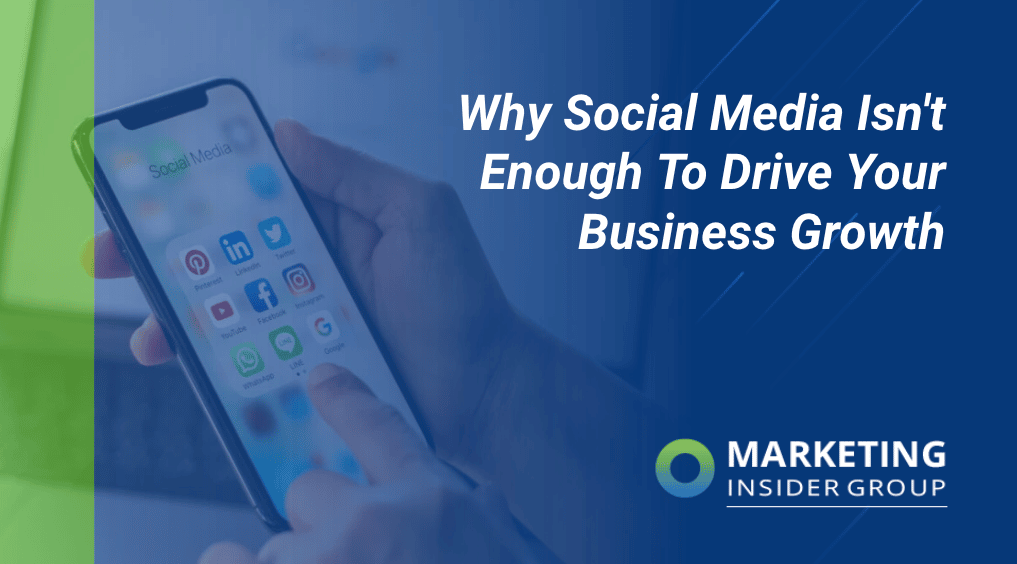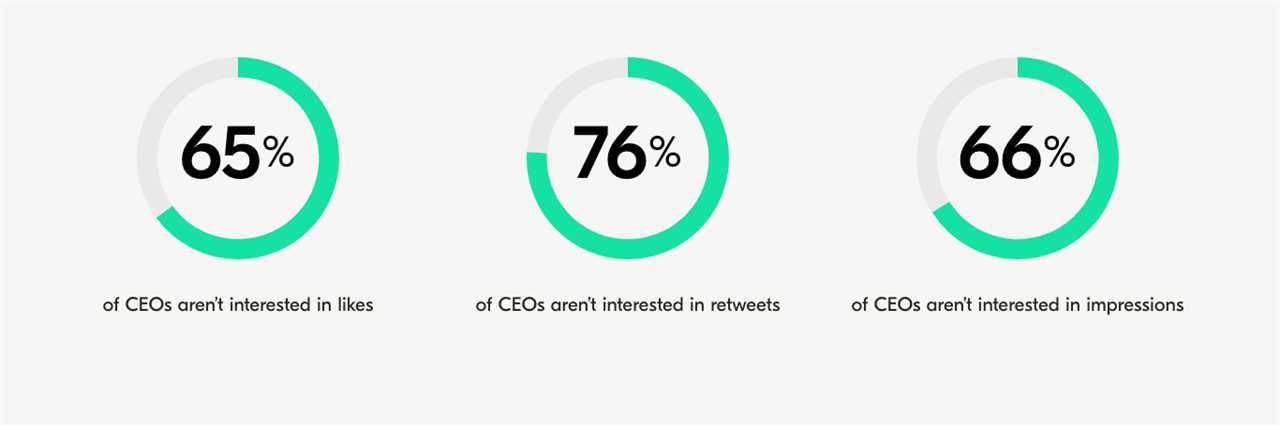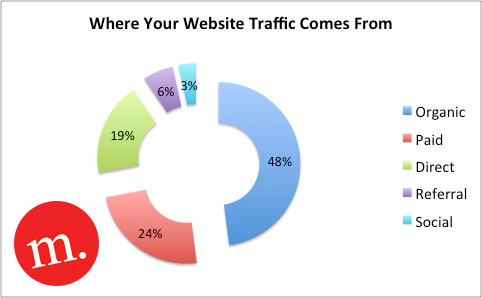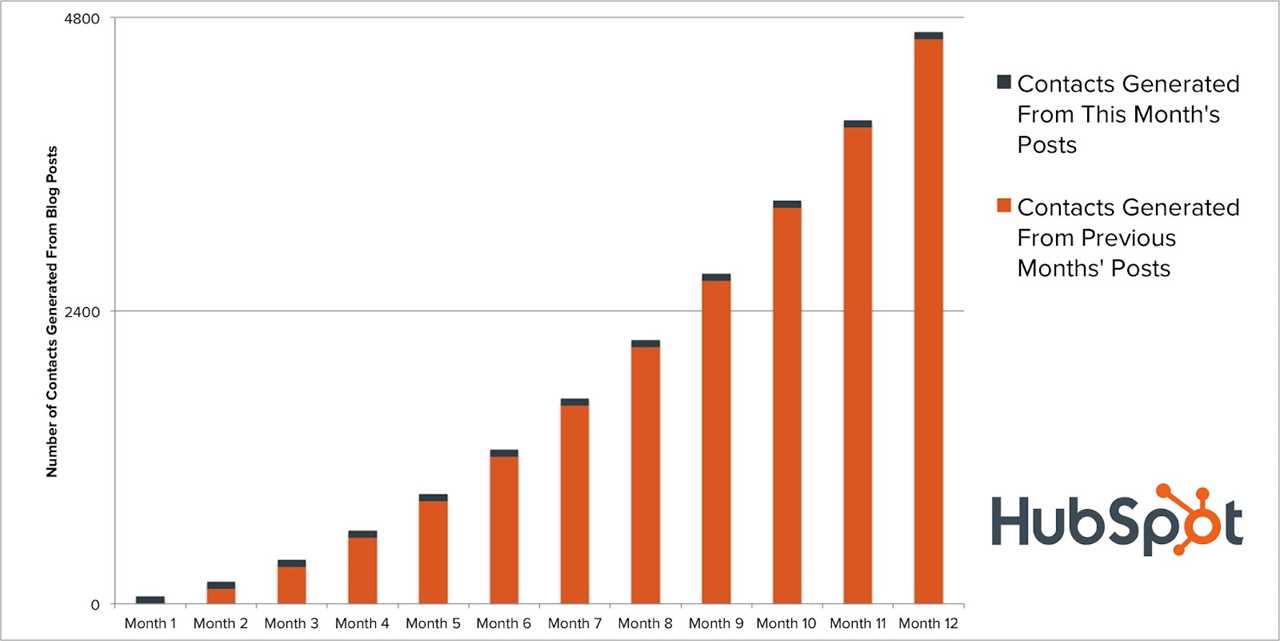
Nearly 4 billion people are on social media around the world, so it makes sense that brands are turning to social media as a core part of their digital marketing strategies. But did you know that social media only accounts for less than 2% of the typical B2B company traffic. And less than 7% of e-commerce brand’s website traffic!
Maybe that’s why a recent survey shows that CEOs are not convinced that social media is generating the results their companies need, and marketers are often left frustrated trying to demonstrate its effectiveness with metrics like followers, impressions, and sentiment (really?).
So is social media an effective digital marketing strategy or not? The answer: it can be, maybe, but not on its own. To really be effective, brands need to implement a strong content marketing strategy to serve as the foundation, and integrate social media as a complementary tool for amplifying their message.
Quick Takeaways
- While CEOs believe that social media is effective for building reputation, the majority feel that it is not effective at driving results that matter: conversions and sales. (I agree!)
- More than 90% of online experiences start with search engines and almost half of website traffic is driven by search results. Companies need strong content marketing strategies to ensure their content is showing up on SERPs and driving traffic to their websites.
- While social media should not be a company’s sole source for digital marketing, it can be a complement to content marketing and is most effective when the two are integrated.
Your First Marketing Hire Is For Social Media?
We have seen far too many e-commerce companies, B2B SaaS businesses and small startups who think social media is so important that they make their first marketing hire a social media person or agency. Why spend so much time or money on something that falls so far down the list of marketing activities that produce business results.
Think advertising is the best place to start? Well you know banner ads have 99 problems and a click ain’t one. Advertising only accounts for less than 10% of B2B sales and less than 20% for e-commerce companies.
Organic traffic is the biggest drives of leads and revenue for most companies. And content is the best way to earn organic traffic and rankings. The best part is that content marketing doesn’t cost as much as either social media or paid ads.
What CEOs are Saying about Social Media Marketing
A recent survey put a pin in what has seemed to be a consensus belief that social media is the key to digital marketing strategy for companies today.
A few quick stats to give you an idea of the CEO sentiment:

The 200 CEO respondents had a lot to say about why social media is nice for building reputation and engaging with customers, but not effective as a core marketing strategy or a driver of real metrics that matter: conversions and sales.
This is an unfortunate result for marketers who have spent a lot of their time over the past decade or so utilizing metrics like clicks, impressions, and shares to demonstrate why social media is a necessary strategy and get CEOs on board.
So after all of that effort, why are CEOs still disenchanted with social media? Much of it goes back to the vague ability to specifically connect social media metrics with the metrics that matter most to CEOs and to a company’s bottom line: conversions and sales.
The same survey found that 77% of CEOs expect marketing to directly impact their bottom line — they reported their three top priorities to be new customers, increased sales, and sales lead generation. It’s no surprise then that it’s difficult to convince them of social media’s importance if they can’t clearly see how it impacts what they care about most.
[That’s why our weekly blog content service focuses on measurable results including a monthly report to prove our value.]
Why Social Media Isn’t Enough on its Own
Social media is a great tool for engaging with your audiences and monitoring the sentiment around your brand. But there are critical reasons why it should not be your sole or even primary marketing strategy.
You Don’t Own Social Posts – the Platforms Do
Companies using social media as the original source for content they’re sharing may want to keep one important factor in mind — they don’t own any of it. When content is shared on social media, it’s owned by the platform where it’s posted and can be redistributed for their financial gain without your knowledge or permission, even if you consider it proprietary.
Indirect Connection to Conversion Points
Driving sales means driving your customers to the places where they can directly make a purchase — in most cases, to your website. While social media can be effective at expanding your reach, re-sharing content, building a brand personality, and engaging directly with your audience, it requires an extra click to get to your website and make a purchase. That’s why it should be one vehicle for driving traffic to your website, but not the only one.
Consumers Start on Search Engines
If it’s not social media that should be your number one driver of traffic to your website, then what is it? This is an easy one actually: search engines. More than 90% of all online experiences start with a search engine. Whether people are looking for a topic or a specific company, most of the time they’ll turn to Google to find it for them quickly. Creating content that ranks high on search engine results pages is significantly more effective at driving traffic to your website than any social media post.
You Can’t Control Placement
Visibility on social media is heavily determined by purchased ads, and even when you’re investing in those, it can be difficult to determine where exactly your content is being placed and who is seeing it. Plus, depending on the platform, existing content can be difficult to find after a few days or weeks as it moves down your timeline and other content is posted above it. This lack of control over what’s visible creates the risk that your best content will get lost in the mix without ever being seen by some potential customers, even if they visit your page.
What does this mean?
Social media can be an awesome tool for building your brand personality and cultivating a community within your customer base, not to mention a great opportunity to interact with them directly. But companies who want to truly drive results from their digital marketing efforts need more — they need content marketing.
If you’re not convinced, consider that despite the amount of time and effort that brands put into social media marketing, only 3% of their website traffic is driven by social, compared to nearly half driven by organic search.

Image Source: Mayoro Agency
Let’s go back to that search engine statistic. If 93% of online experiences begin on search engines, how can you get your content on those results pages to drive traffic?
The answer: content marketing. Content marketing is the consistent publishing of content that customers want on YOUR website.
Companies who publish content on a blog on their websites increase organic traffic and ultimately see better long-term results (that require less work) because their previously published content continues to drive traffic long after it’s originally published.
Bonus: Check out my latest webinar on 10 tips for optimizing your content marketing including tips on automating social media.
According to Hubspot, 90% of the leads they generate each month come from content published months or even years ago.

Image Source: Hubspot
How Your Content and Your Social Media Work Together
The real key to effectively using social media and content marketing in your strategy is integration. Just because social media shouldn’t be your primary source of content marketing doesn’t mean it isn’t a great complementary tool for amplifying the content you produce.
Linking your social media accounts with clickable buttons on your website, making your blog content shareable, and displaying your social media feeds on your website are powerful ways for increasing your audience’s exposure to your brand — in short, you ensure your content drives customers to your site but also encourages them to follow your social media accounts.
Putting it All Together
It’s understandable that CEOs remain skeptical about how social media can really drive the results they’re looking for — more revenue. But the push and pull between marketers and executive leadership can be resolved with a strategy that employs social media as a tool without being fully dependent on it to convert customers and create sales.
If you’re ready to implement an integrated content strategy that elevates marketing ROI, check out our Content Builder Service and set up a quick consultation to learn how we can help.
The post Why Social Media Isn’t Enough To Drive Your Business Growth appeared first on Marketing Insider Group.
------------Read More
By: Michael Brenner
Title: Why Social Media Isn’t Enough To Drive Your Business Growth
Sourced From: marketinginsidergroup.com/social-media/why-social-media-isnt-enough-to-drive-your-business-growth/
Published Date: Thu, 20 Oct 2022 14:45:08 +0000
.png)





